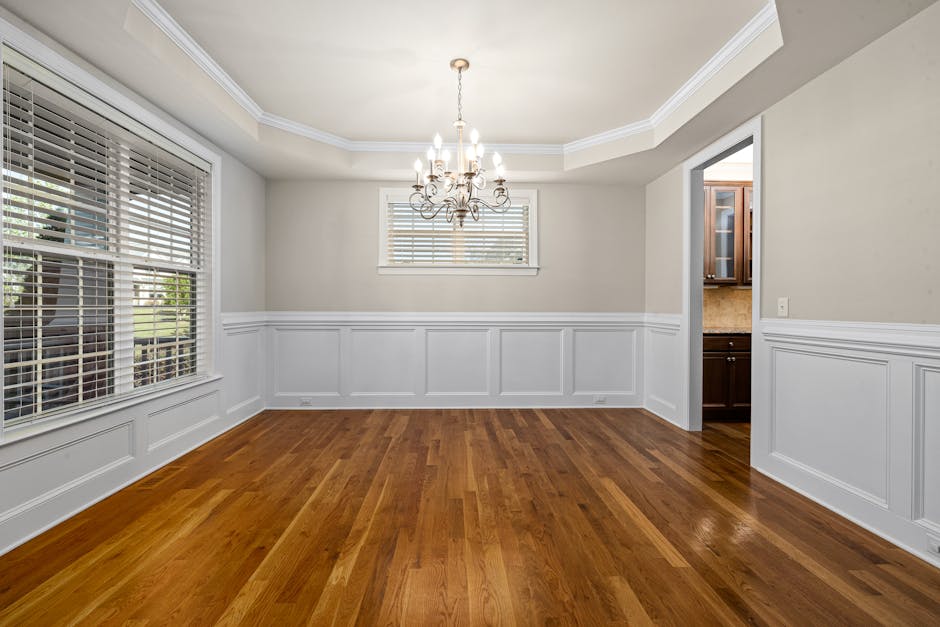Tips for Selling Luxury Properties
Are you looking to sell a luxury property but unsure where to start? Selling high-end real estate requires a different approach compared to selling a standard home. From understanding the target market to showcasing the unique features of the property, there are several key tips that can help you successfully navigate the luxury real estate market. In this comprehensive guide, we will explore the essential tips for selling luxury properties, providing you with valuable insights and strategies to maximize your selling potential.
The Importance of Understanding the Luxury Real Estate Market

By Curtis Adams via Pexels
Before delving into the nitty-gritty of selling luxury properties, it’s crucial to have a solid understanding of the luxury real estate market. Luxury properties are characterized by their high price tags, exclusive amenities, and unique features that set them apart from standard homes. Buyers of luxury properties are typically affluent individuals who are looking for a prestigious, high-end lifestyle.
When selling a luxury property, it’s essential to understand the mindset and preferences of luxury buyers. These buyers are not just looking for a place to live; they are seeking a statement of their success, wealth, and status. As a seller, you need to tailor your marketing strategies and presentation to appeal to this discerning audience.
Setting the Right Price

By Pixabay via Pexels
One of the most critical factors in selling a luxury property is setting the right price. Pricing a luxury property too high can deter potential buyers, while pricing it too low may undervalue the property. To determine the optimal price for your luxury property, consider factors such as the current market trends, the property’s unique features, and the location.
It’s essential to work with a real estate agent who specializes in the luxury market and has experience selling high-end properties. A knowledgeable agent can help you conduct a thorough market analysis, assess comparable properties, and set a competitive yet attractive price for your luxury property.
Highlighting the Unique Features of the Property

By Kampus Production via Pexels
When marketing a luxury property, it’s crucial to highlight its unique features and amenities. Luxury buyers are looking for exclusivity and luxury, so showcasing what makes your property stand out is essential. Whether it’s a breathtaking view, a state-of-the-art home automation system, or a private spa, these features can be the key selling points that attract potential buyers.
Invest in professional photography and videography to showcase the property in the best possible light. High-quality visuals can capture the essence of the property and create a lasting impression on potential buyers. Additionally, consider staging the property with luxury furnishings and decor to help buyers envision themselves living in the space.
Targeted Marketing Strategies
Marketing a luxury property requires a targeted approach to reach high-net-worth individuals who are in the market for luxury real estate. In addition to traditional marketing methods such as listing the property on real estate websites and in local publications, consider partnering with luxury real estate agencies and using targeted online advertising to reach affluent buyers.
Utilize social media platforms such as Instagram and Facebook to showcase the property to a global audience of luxury buyers. Create engaging content that highlights the property’s unique features and lifestyle amenities. Consider hosting exclusive events or virtual tours to attract potential buyers and generate buzz around the property.
The Importance of Networking in the Luxury Real Estate Market

By Alena Darmel via Pexels
Networking is key in the luxury real estate market, where relationships and connections can play a significant role in closing a deal. Build relationships with other luxury real estate agents, industry professionals, and affluent individuals who may be interested in purchasing a luxury property. Attend networking events, industry conferences, and social gatherings to expand your reach and connect with potential buyers.
Consider partnering with luxury brands and organizations to promote the property to a targeted audience of affluent individuals. Collaborations with luxury interior designers, architects, and lifestyle brands can enhance the appeal of the property and attract high-net-worth buyers.
Investing in Property Maintenance and Upgrades
Before listing a luxury property on the market, it’s essential to ensure that it is in pristine condition. Invest in property maintenance and upgrades to enhance the overall appeal and value of the property. From landscaping and exterior improvements to interior renovations and modernization, these upgrades can make a significant difference in attracting potential buyers.
Consider hiring professional home stagers and interior designers to showcase the property in the best possible light. These experts can help create a luxurious and inviting atmosphere that resonates with luxury buyers. Additionally, consider offering incentives such as a home warranty or a credit for upgrades to sweeten the deal for potential buyers.
Expert Opinions
We reached out to luxury real estate agent, John Smith, who shared his expertise on selling luxury properties. According to John, “Selling luxury properties requires a combination of market knowledge, strategic marketing, and attention to detail. Understanding the preferences and motivations of luxury buyers is essential in crafting a successful selling strategy.”
John also emphasized the importance of building relationships and networking in the luxury real estate market. “Networking with other industry professionals and affluent individuals can open doors to potential buyers and lead to successful transactions. Building trust and credibility with clients is key to long-term success in the luxury real estate market.”
Common Misconceptions about Selling Luxury Properties
One common misconception about selling luxury properties is that they will sell themselves due to their high price tags. In reality, selling a luxury property requires a strategic and targeted approach to attract the right buyers and showcase the unique features of the property. From setting the right price to investing in marketing and networking, selling luxury properties requires proactive effort and diligence.
Another misconception is that luxury properties only appeal to a niche market of ultra-wealthy individuals. While luxury properties do target affluent buyers, there is a diverse range of luxury buyers with varying preferences and budgets. By understanding the motivations and preferences of luxury buyers, sellers can tailor their marketing strategies to appeal to a broader audience of potential buyers.
Conclusion
As you embark on the journey of selling a luxury property, remember that success in the luxury real estate market requires a combination of market knowledge, strategic marketing, and attention to detail. By understanding the mindset of luxury buyers, highlighting the unique features of the property, and investing in targeted marketing strategies, you can maximize your selling potential and attract the right buyers.
Remember to work with a knowledgeable real estate agent who specializes in the luxury market and leverage the power of networking and relationships to expand your reach. By setting the right price, showcasing the property’s unique features, and investing in property maintenance and upgrades, you can increase the appeal and value of the property to potential buyers.
Whether you’re selling a luxury penthouse, a waterfront estate, or a historic mansion, the tips and strategies outlined in this guide can help you navigate the competitive luxury real estate market and achieve a successful sale. Selling luxury properties is both an art and a science, requiring creativity, expertise, and a deep understanding of the luxury buyer’s mindset. By following these tips and staying informed about market trends, you can position your luxury property for a successful sale in today’s competitive real estate market.




